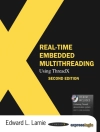This book provides extended frameworks and models to help with the adoption of information and communication technologies (ICT) in developing countries. The book first discusses the extent to which conventional ICT theories can be rigid in nature, often unable to handle the constant advances in technology, and technology adoption, implementation, usage, and disposal, not to mention different needs and cost availability in developing countries. The authors go on to show how new and revised models, tested in many societies in developing countries, can solve this mismatch. The authors provide examples of successful ICT adoption in developing country settings, in the areas of agriculture, culture, forestry, education, economics, health, and governance. The authors also show how techniques from persuasive design, philosophical designs, and motivational designs have been adjusted to facilitate successful ICT adoption, implementation, usage, and disposal in targeted regions.
Spis treści
Chapter 1. Model for Improving Social Media Tax Compliance in Uganda.- Chapter 2. Digital Usage of Indian Teleworkers in Home Settings: A Digital Inclusion Framework.- Chapter 3. Discriminant Validity of Factors for Evaluating Performance of e Health Information Systems.- Chapter 4. Unlocking Digital Transformation: Enablers and Barriers to Digital Population Census Adoption.- Chapter 5. Gamifie – A Gamified Framework as a strategy to increase Motivation and Engagement among Employees in IT Industries.- Chapter 6. A Collaboration Process for Developing Business Process Improvement Implementation Plans.- Chapter 7. A Framework for adopting ICT based services among coffee farmers in Uganda. Case Study of Bugisu sub region in Bugisu.- Chapter 8. Assistive technologies for the visually impaired learners: Are teachers adequately trained to use assistive technologies?.- Chapter 9. Perceptions of Health Care Workers on Technology Adoption in Health Care Facilities in Eswatini.- Chapter 10. Digital Preservation of Cultural Heritage in Uganda: Case of Bugisu Sub Region.- Chapter 11. Fostering Higher Education Engagement with the United Nations’ Sustainable Development Goals: A Transformative Pedagogical Approach.- Chapter 12. Suitability of e Learning Adoption Frameworks and Models for Higher Education Institutions in Uganda.- Chapter 13. The Application of Markov Chains Model in Determining the Switching Behaviour of Customers in Phone Companies in Developing World: A Study of Tanzania.
O autorze
Emmanuel Eilu holds a Ph.D. in Information Technology and a Master’s of Science in Information Technology from Makerere University. His areas of research are in Human-Computer Interaction (Usability, User Experience and Anticipated UX), and ICT for Development Research (Adoption of E-Government Systems; E-governance; E-voting; Biometric Voter Registration Systems; Electronic Civil Registers, E-Health and M-agriculture). Currently, he is a senior lecturer at Uganda Christian University. He has published over 30 research papers. Eilu has also worked as a Data Analyst Consultant for international NGOs.
John S Pettersson is a full professor of Information Systems at Karlstad University in Sweden. His focus is in methodological support within the area of Human-Computer Interaction. Prof. Pettersson initiated and led the development of Ozlab, a system for making non-programmed prototypes interactive, 2001-2003. Presently, a web-based version has been developed by which co-design activities can be made on distance as well as ordinary walkthroughs and usability tests. Rehema Baguma is an Associate Professor of Information Systems. She holds a Ph.D. in Information Systems from Radboud University, the Netherlands. Dr. Rehema also holds a Bachelor of Library and Information Science; a Post Graduate Diploma in Computer Science; a master of Computer Application Technology and a Ph.D. in Information Systems. She is a researcher in web systems, web accessibility and computing solutions for the physically disabled. Dr. Baguma has accrued extensive experience in managing academic records systems.
Ganesh Bhutkar is a full Professor and a usability researcher. He is a Coordinator, Centre of Excellence in Human-Computer Interaction (HCI) and also, Assistant Head (Research), Department of Computer Engineering at Vishwakarma Institute of Technology (VIT), Pune. His research work is mainly focused on HCI, Assistive Technologies and Medical Applications / Usability.He has a Ph.D. in HCI from Indian Institute of Technology, Bombay and about 20+ years of academic experience. He is an active member of ACM and SIGCHI. Recently, his research team has developed a utility Android app – Eye+ for visually impaired users, which has 7100+ app downloads and was also nominated for National Award. He has delivered invited talks and also, participated in research / academic events across Europe, Africa, and Asia.












